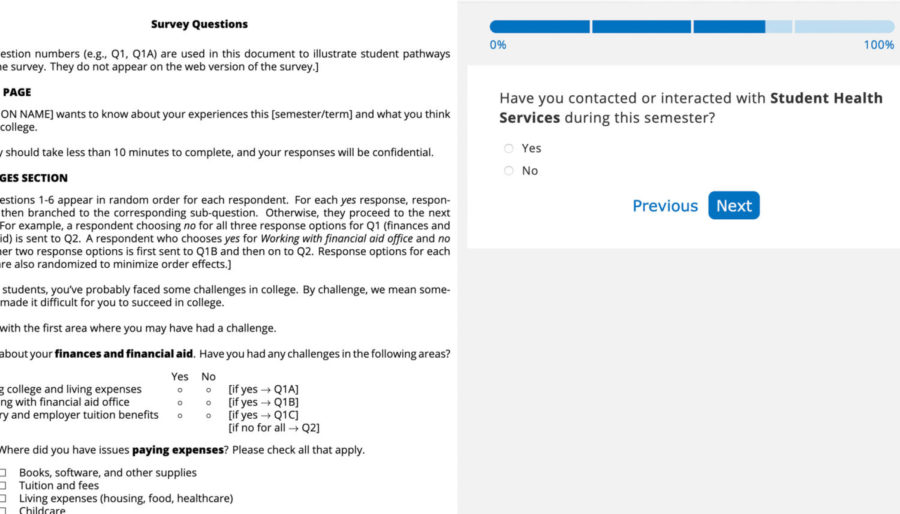City College is hoping to get a more representative picture of the student population by adopting a new student engagement survey for the 2020-21 academic year.
Regular reminders to participate in the online Revealing Institutional Strengths and Challenges (RISC) Survey have been delivered to Pipeline inboxes since Feb. 23.
With every student having the opportunity to respond, The survey allows City College administration the opportunity to improve the educational experience and tackle issues such as equity and inclusion.
Although every student has the opportunity to respond, not everyone participates, which can lead to misleading results.
“We’re hoping once you get a larger participant base that it will give us a more representative sample,” said Z Reisz, senior director of the Office of Institutional Assessment, Research and Planning. “A more representative sample of the student population allows for a deeper understanding of group differences in their educational experience.”
Previous surveys have used proportional representation in their sampling, which used a few classes to represent the whole section or department.
According to Reisz, when the Survey of Entering Student Engagement was administered in 2018, approximately 700 student responses represented a total population of around 4000.
“Everyone should be very uncomfortable generalizing the experience of that sample to the entire student population,” Reisz said during a College Planning Council meeting on Oct. 20, 2020.
“Once you start to disaggregate that by any group with more than two categories, for example ethnicity, you start to get down into very, very small samples,” he said.
The RISC Survey is the brainchild of Paul Umbach and Perconter Educational Research and Training. Umbach has over two decades of experience in higher education data science, including work as a research analyst at the National Survey of Student Engagement.
“We realized no one is asking what challenges students are facing and what supports their success,” Umbach said.
He said the survey aims to help colleges best identify which ways they can help students succeed, but gives the option to skip questions that do not pertain to every student. This streamlines the process for both the students and those compiling results of the survey.
“We want to help campuses help students,” Umbach said, “which allowed us to recognize we can get a ton of information from students without them having to answer everything.”
That adaptability was an important point behind the Institutional Effectiveness Committee and Reisz’s recommendation—and the CPC’s ultimate decision to use the survey.
Prior surveys had a set list of questions which were answered in a selection of classes, leading to students being asked about offices and issues they may not have interacted with or had on campus.
RISC covers over 80 potential challenges students may face, but only asks a question if the responder indicates something is a challenge. Umbach said this ultimately provides a lot of useful data, while keeping expected response time under ten minutes.
Beyond presenting specifically targeted response data, the RISC Survey will also allow City College to compare responses against around 40 other participating community colleges nationally. According to Umbach there may be enough California community colleges taking part that comparisons can be made at the state level as well.
City College will receive the survey data shortly after it closes, then Reisz’s department will analyze the data and put together reports for administration. He expects the information to be available over the summer, and presented to committees in Fall 2021.








